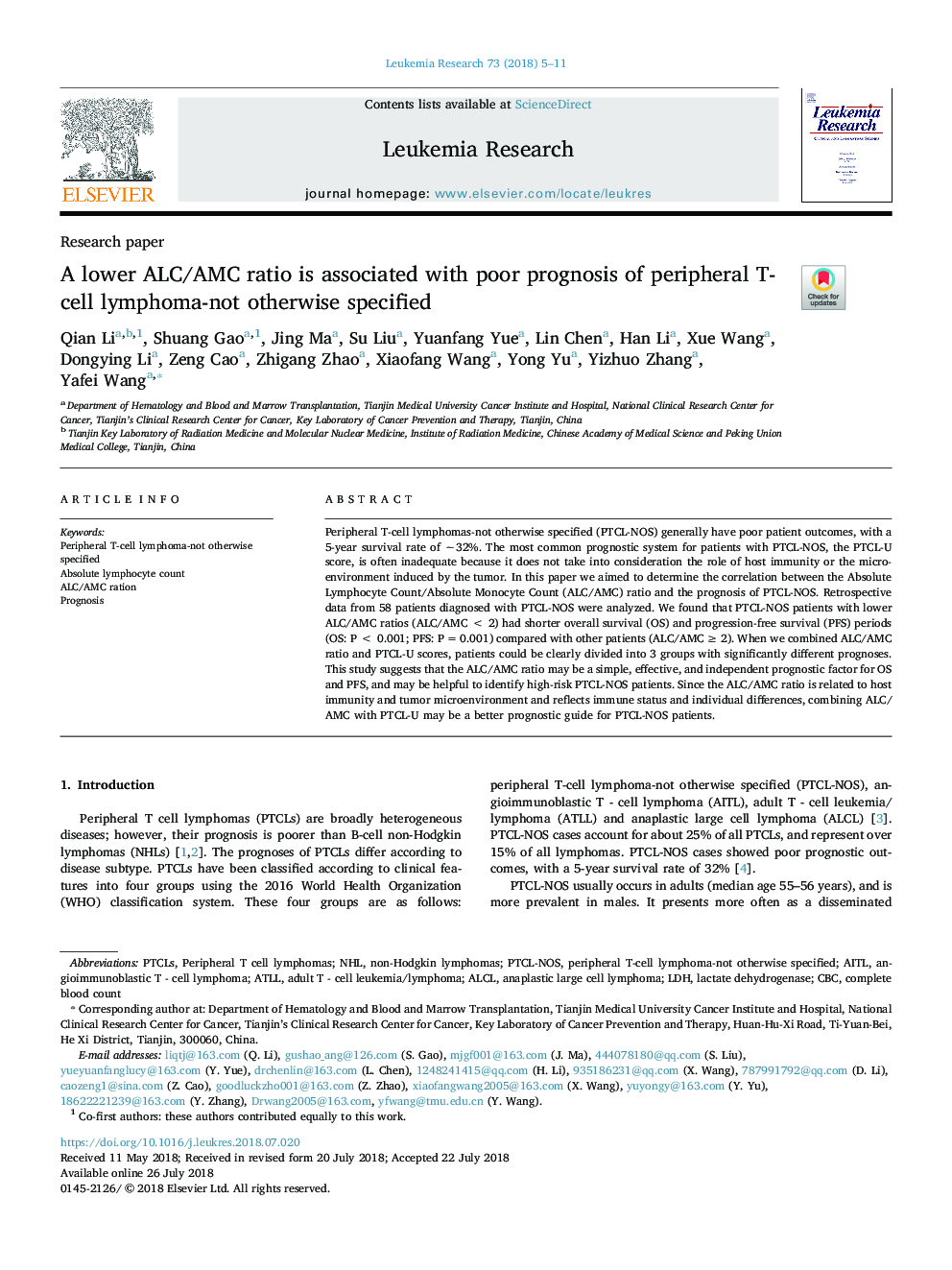| Article ID | Journal | Published Year | Pages | File Type |
|---|---|---|---|---|
| 8956260 | Leukemia Research | 2018 | 7 Pages |
Abstract
Peripheral T-cell lymphomas-not otherwise specified (PTCL-NOS) generally have poor patient outcomes, with a 5-year survival rate of â¼32%. The most common prognostic system for patients with PTCL-NOS, the PTCL-U score, is often inadequate because it does not take into consideration the role of host immunity or the microenvironment induced by the tumor. In this paper we aimed to determine the correlation between the Absolute Lymphocyte Count/Absolute Monocyte Count (ALC/AMC) ratio and the prognosis of PTCL-NOS. Retrospective data from 58 patients diagnosed with PTCL-NOS were analyzed. We found that PTCL-NOS patients with lower ALC/AMC ratios (ALC/AMCâ<â2) had shorter overall survival (OS) and progression-free survival (PFS) periods (OS: Pâ<â0.001; PFS: Pâ=â0.001) compared with other patients (ALC/AMCââ¥â2). When we combined ALC/AMC ratio and PTCL-U scores, patients could be clearly divided into 3 groups with significantly different prognoses. This study suggests that the ALC/AMC ratio may be a simple, effective, and independent prognostic factor for OS and PFS, and may be helpful to identify high-risk PTCL-NOS patients. Since the ALC/AMC ratio is related to host immunity and tumor microenvironment and reflects immune status and individual differences, combining ALC/AMC with PTCL-U may be a better prognostic guide for PTCL-NOS patients.
Keywords
Related Topics
Life Sciences
Biochemistry, Genetics and Molecular Biology
Cancer Research
Authors
Qian Li, Shuang Gao, Jing Ma, Su Liu, Yuanfang Yue, Lin Chen, Han Li, Xue Wang, Dongying Li, Zeng Cao, Zhigang Zhao, Xiaofang Wang, Yong Yu, Yizhuo Zhang, Yafei Wang,
